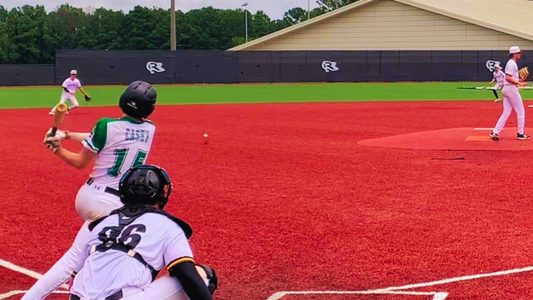Hey everyone, I’m Grant. I made the varsity baseball team as a freshman, and I’m here to share some tips to help you make the leap from club baseball to high school varsity. Let’s dive into the key questions you’ve been Googling about this big transition.
Introduction
Making the transition to high school baseball is a big step. Whether you've been rocking club baseball or just enjoying the game, high school brings more competition and tougher practices. Here’s what you need to know to make the move smoother.
What to Expect at High School Baseball Tryouts

How to Prepare for High School Baseball Tryouts?
Tryouts are intense, but here’s how you can prepare:
- Conditioning: Make sure you’re in top shape. Tryouts test your endurance, speed, and strength. Baseball involves short bursts of intense activity followed by periods of rest. Building cardiovascular endurance ensures you can maintain high performance throughout games and practices. You likely haven't been lifting enough. Size matters. START NOW
- Defensive/offensive Drills: Keep practicing your hitting, fielding, throwing, and base running. Consistency is key. 20-30 minutes daily at minimum. Your competition has been getting coaching and private lessons consider this if your budget allows.
- Game IQ: Understanding the game’s strategies, rules, and your position’s role can set you apart from other players. Watching games, studying plays, and learning from experienced players can boost your baseball intelligence.
- Mental Preparation: Stay focused and calm. Visualize success and keep a positive mindset.
- Understanding Expectations: Coaches look for teamwork, hustle, and a positive attitude. Show them you’re not just skilled but also a great teammate. Bad body language is not accepted. Keep your head up at all times. Cheer on teammates even if you're competing for the same spot. If you're a freshman looking to make varsity you need to be polished in the field, be one of the strongest lifters in your class, throw extremely hard: 80+ in the infield, 85+ from the mound and most importantly for position players you must be able to hit for power and average with high exit velocities over 85 MPH. If this is not you, that's ok that is what JV is for- development.
- What Are the Key Differences Between Club Baseball and High School Baseball?
Here’s what changes when you move from club to high school baseball:
- Level of Competition: High school baseball is more competitive. You’re up against the best in your school and maybe even the state. Freshman team and JV are development based and while you do not need to be a finished product like with Varsity, the competition for spots is intense.
- Coaching Style: High school coaches often focus more on team strategy and discipline. Coaches are not going to cater to you in any way. You need to be a self-starter and take responsibility for your own development. You will be earning every at-bat and start.
- Practice Intensity: Practices are more rigorous and structured, focusing on conditioning and team strategy. You will most likely be earning a spot in practice and you must remain focused at all times. Because there is little downtime during practice your level of conditioning is especially important.

Best Ways to Get Noticed by High School Baseball Coaches
How to Stand Out During Tryouts?
To catch the coach’s eye:
- Be Coachable: Show that you can take direction and improve.
- Demonstrate Effort: Always hustle, whether it’s during drills or picking up balls.
- Showcase Versatility: Being able to play multiple positions can make you more valuable.
- Exhibit Good Sportsmanship: Respect your teammates, opponents, and the game.
- Get Big: Size matters, physicality plays. Eat big and lift big- in a safe manner. Required Equipment for High School Baseball
What Equipment Do You Need for High School Baseball?
Here’s your checklist:
- BBCOR Bat: Make sure your bat meets high school standards.
- Glove: A well-broken-in glove suitable for your position.
- Cleats: Depending on the field, you might need metal, molded or turf cleats.
- Protective Gear: Helmets, cups, and any additional gear for your position.
- Uniform: The team usually provides uniforms, but ensure you have proper practice attire.

Tips for Balancing Academics and High School Baseball
How to Manage Time Effectively?
Balancing school and baseball can be tough. Here’s how to manage:
- Create a Schedule: Plan your week, including time for homework, practice, and rest.
- Prioritize Tasks: Finish your homework early to avoid last-minute stress.
- Stay Organized: Keep track of important dates like game days and assignment deadlines.
- Seek Support: Don’t hesitate to ask for help from teachers or tutors if needed.
- Communicate: Your teachers will not know your schedule. Plan ahead and get assignments beforehand. Plan for tests by communicating with your teacher if you will be missing class.How to Handle the Increased Competition in High School Baseball
What Are the Challenges and How to Overcome Them?
The competition is tougher, but so are you. Here’s how to handle it:
- Stay Committed: Keep practicing and stay dedicated. Improvement comes with consistent effort.
- Focus on Fundamentals: Master the basics to set yourself apart from other players.
- Physical Conditioning: Maintain peak physical fitness to perform at your best.
- Mental Toughness: Develop resilience. Learn to stay focused under pressure and bounce back from setbacks.
Benefits of Playing High School Baseball
Why Should You Play High School Baseball?
Playing high school baseball has its perks:
- Exposure to Scouts: High school games attract college and professional scouts. Over 7% of high school baseball players move on to play at the college level.
- Team Camaraderie: Being part of a team builds lifelong friendships.
- Skill Development: The structured environment helps refine your skills.
- Academic Opportunities: Excelling in high school sports can lead to scholarships and other academic opportunities. According to the National Federation of State High School Associations, students involved in high school sports are more likely to graduate and attend college.
High School Baseball Practice Routines and Expectations

What to Expect in High School Baseball Practices?
High school practices are intense but rewarding. Here’s what to expect:
- Warm-Ups and Conditioning: Start with a warm-up session followed by conditioning exercises.
- Defensive/Offensive Drills: Focus on improving specific skills like batting, fielding, and pitching.
- Scrimmages: Regular scrimmages simulate game conditions and help build team chemistry.
- Team Strategy: Learn about game strategy, positioning, and situational plays.
Conclusion
The transition to high school baseball is a big step, but it’s also an exciting one. Think of it like moving from a small pond to a big lake. In the small pond, you might be the biggest fish, but in the big lake, you’ll encounter many others with the same or even greater talent. The key is to keep swimming, keep improving, and stay dedicated.
We hope this guide has provided valuable insights for both players and parents. If you have any questions or experiences to share about transitioning from club to varsity baseball, please leave a comment below. We’d love to hear from you!
```



